Curious goats in the streets of Wales, wild boars roaming freely in Haifa, endangered turtles returning to nest on deserted beaches in Brazil and dolphins swimming in Marsamxett Harbour. Wild animals that usually keep away from all the noise of busy cities and seas have been spotted exploring and experiencing the world in a different way.
In some countries, nature is thriving as a result of people staying indoors. But that’s not always the case. Creatures heavily dependent on tourists and fallen food scraps have had to leave the sanctuary of their homes to forage for food to avoid starvation. Pigeons, monkeys in Thailand and deer in Japan are just a few of such animals. In other parts of the world, people who have lost their jobs have had to turn to illegal hunting of wild animals for food. Quarantine and tourism restrictions also mean that there is less wildlife protection of endangered animals and not enough money to fund conservation parks.
But COVID-19, despite its negative impacts on every aspect of our lives, has given us what might be a once in a lifetime opportunity – to see the world as we have never seen it before. To make us reflect more on both the positive and negative consequences that human behaviour has on wildlife and nature ecosystems. The more we learn about our planet and nature, the more we can respect it. We need to realise the effect that our actions have on our environment. In the words of primatologist Jane Goodall “Only if we understand, can we care. Only if we care, we will help. Only if we help, we shall be saved.”
Nature is fascinating. The world is fascinating. These days, we might be confined to our tiny island, but that doesn’t mean we can’t travel the world to visit new countries, to explore spectacular natural phenomena and to discover the amazing animals that we share our world with. Thanks to technology, we can now travel anywhere with a simple click of a button.
We’re aware that the role of technology and the amount of time spent online is a controversial topic when it comes to kids and parenting. But there are some excellent resources which are not only educational but are also bound to keep kids engaged, inspired and curious about the natural world.
There’s no denying the wealth of knowledge easily accessible through the internet. But the internet is more than just an infinite book of knowledge. It has made self-learning more accessible, encourages collaborative learning and has also increased our opportunities to learn beyond the classroom and to interact with other students and experts from around the world.
Here are just a few resources that you can use to travel the world; through space and time.
Make sure to explore local initiatives by NGOs to conserve Maltese nature such as Nature Trust, Birdlife Malta, Sharklab Malta, GreenHouse Malta and numerous other organisations. And plan some time to enjoy a beautiful walk at Salina Park or Foresta 2000!
The website also gives you information about where the live cameras are set up, as well as information on what can be seen.
Technology has the power to engage minds in ways which we could not have thought possible 30 years ago. One of these technologies is AR, which is increasingly becoming more readily and freely available. Virtual reality, which is less readily available due to the need of a VR headset, has also created a new way of learning. We use it often at the science centre to explain difficult concepts, or if we want visitors to have a fully immersive experience. Seeing the emotions on peoples’ faces when they travel back in time or to a different continent altogether in a blink of an eye is something that we cherish at Esplora.
(To show you what AR look like, we’ve also added some photos featuring a couple of very patient dogs who agreed to be our models for the day.)
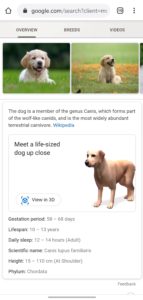 |
 |
 |
 |
 |
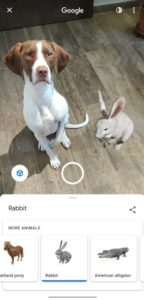 |
These photos were taken by using the 3D feature on Google Search.
To check out more animals in 3D or AR, just swipe up and choose from the available animals.
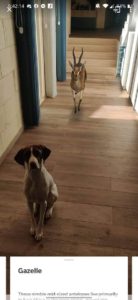 |
 |
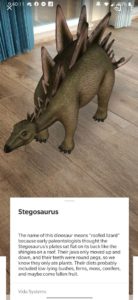 |
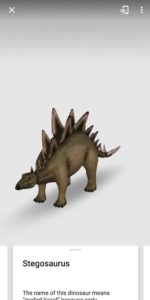 |
These photos were taken by using the Google Expedition app.
Let us know which resources you used to travel the world, and if you’ve taken some photos, we’d love to see them! You can send them to us as a private message or share them on facebook – don’t forget to tag us @esploramalta or #esploramalta.